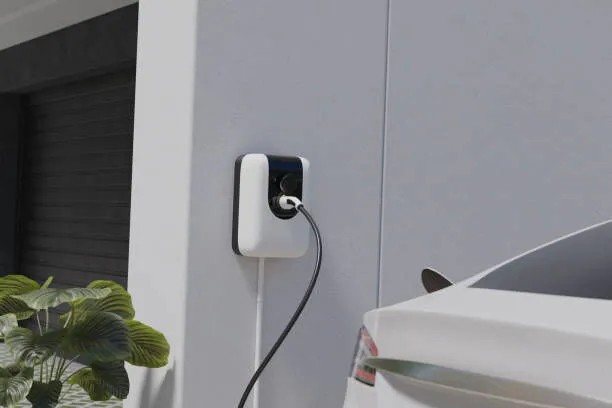How to Install an EV Charger at Home: A Complete Guide
As a professional EV charger manufacturer in China, Topper Company delivers dependable electric vehicle charging stations and comprehensive solutions.
As electric vehicles (EVs) become increasingly popular, many drivers are choosing to install EV chargers at home for unmatched convenience. A home EV charging station offers flexibility, cost savings, and the ability to charge your vehicle overnight or whenever it suits your schedule. This guide explains everything you need to know—from the types of chargers available to installation steps and associated costs.
Can I Install an EV Charger at Home?
Yes, you can install an EV charger at home, provided you have a dedicated parking spot like a driveway or garage. For most residential setups, installing a standard 3.6kW or 7kW charger is relatively straightforward and can be completed in just a few hours.
If you're considering a higher-capacity charger (e.g., 11kW or 22kW), you’ll likely need a three-phase power supply, which is not common in many households and may require electrical upgrades.
Choosing a Charger Location
- Garage wall: Ideal for indoor protection and shorter cable runs.
- Driveway wall: Great for outdoor access; just ensure it’s weather-rated (e.g., IP65 or IP55).
- The final installation spot depends on your home’s electrical layout and the electrician’s assessment.
Why You Should Have an EV Charger at Home
While public charging stations are becoming more accessible at shopping centers, hotels, and office buildings, they’re not always the most convenient option for everyday use.
Key Benefits of Home Charging:
- Convenience: Charge your EV anytime it’s parked.
- Time-saving: Avoid detours or waiting at public chargers.
- Cost-effective: Electricity at home is typically cheaper than public charging.
- Peace of mind: Your EV is always ready to go.
Types of Home EV Chargers
EV chargers are mainly classified into Level 1 and Level 2:
Level 1 EV Chargers
- Power source: Standard 120V outlet
- Charging speed: 2–5 miles of range per hour
- Best for: Low-mileage drivers with predictable, short commutes
- Installation cost: $130–$300 (if you need a new outlet)
Level 2 EV Chargers
- Power source: 240V outlet or hardwired connection
- Charging speed: 10–20 miles of range per hour
- Best for: Most EV owners needing overnight charging
- Installation cost: $500–$2,000 (plus charger cost: $300–$1,200)
- Common outlet: NEMA 14-50
- Compatibility: J1772 standard (Tesla owners require an adapter)
Steps to Install an EV Charger at Home
Installing an EV charger involves both planning and compliance with local electrical codes. Here's a step-by-step overview:
Apply for Necessary Permits
- Contact your local municipality to determine what permits are required.
- In some areas, a plan review or inspection is mandatory.
Install a Dedicated 240V Circuit
- A licensed electrician will add a circuit breaker to your panel for the new charger.
Run Electrical Wiring
- Cables are routed through conduits from the panel to the charger location.
Install the Charging Outlet or Hardwire
- For plug-in units: Install a NEMA 14-50 outlet.
- For hardwired units: Direct connection to the breaker panel.
Mount the Charger
- Install the mounting bracket on a secure surface.
- Ensure the height and position allow for easy cable reach.
Connect and Test the Unit
- Power up and perform functionality checks.
- Electrician should walk you through proper use and safety.
Add a Cable Management System (Optional)
- Keeps your charging cable tidy and reduces wear.
Home EV Charger Installation Costs
Component Cost RangeLevel 1 Outlet Installation$130 – $300Level 2 Outlet/Hardwired Setup$500 – $2,000Level 2 Charger (Equipment)$300 – $1,200Tesla Charging Adapter$150 – $200Electrical Panel Upgrade (if needed)$500 – $1,500Permit Fees (varies by city)$50 – $200
Benefits of Installing a Home EV Charger
- ✅ Convenient overnight charging
- ✅ Saves time compared to public stations
- ✅ Lower energy cost per mile
- ✅ Adds value to your home
- ✅ Future-proof for additional EVs
Things to Consider Before Installation
- Parking location: Proximity to power source and vehicle access.
- Electrical capacity: Ensure your home panel can support an additional load.
- Internet connection: For smart chargers with app control or OCPP integration.
- Weatherproofing: Use IP-rated chargers for outdoor installations.
- Future needs: Consider dual-plug or higher-wattage chargers for multi-EV households.
Conclusion
Installing a home EV charger is a smart, long-term investment for any electric vehicle owner. It offers unmatched convenience, cost savings, and peace of mind. Whether you opt for a basic Level 1 charger or a faster Level 2 system, working with a licensed electrician ensures safety and code compliance. With a well-chosen setup, your home becomes the most reliable EV charging station you'll ever need. Know more about Google SEO Directory





Comments